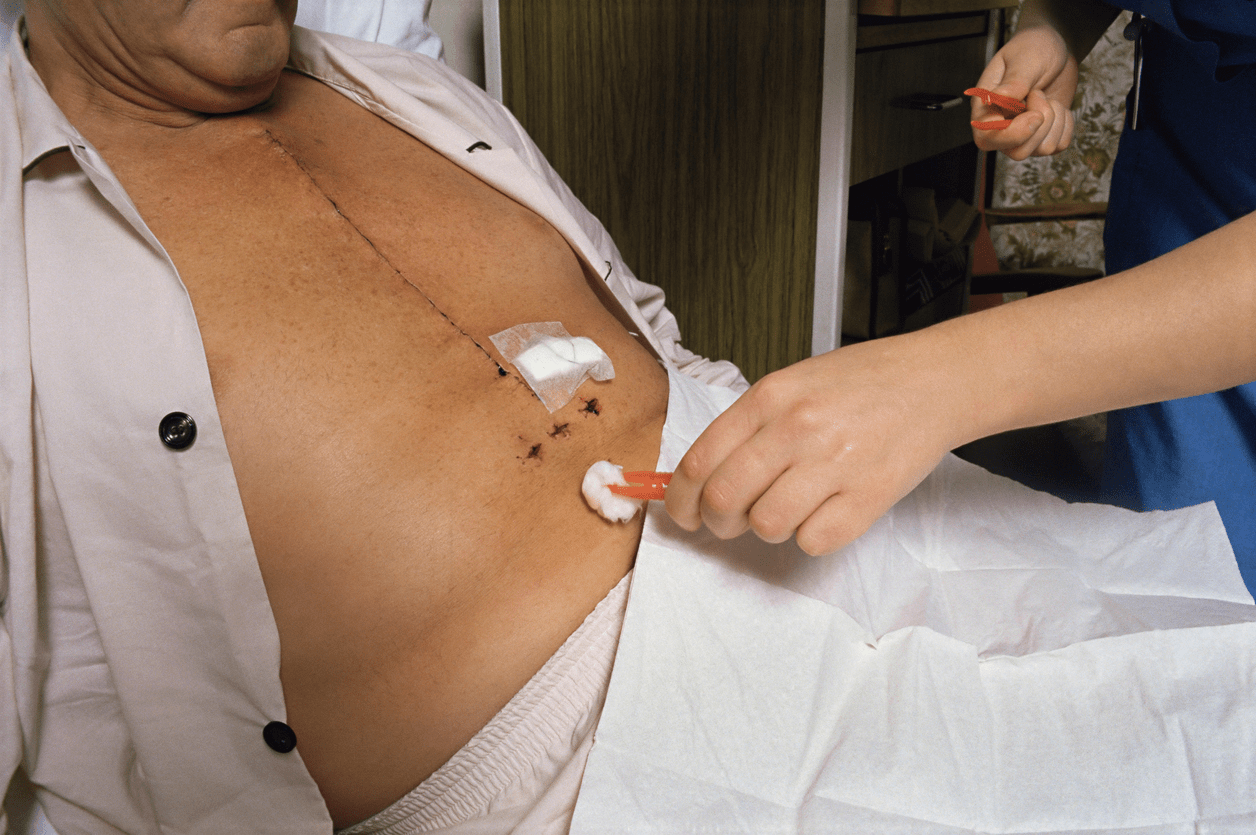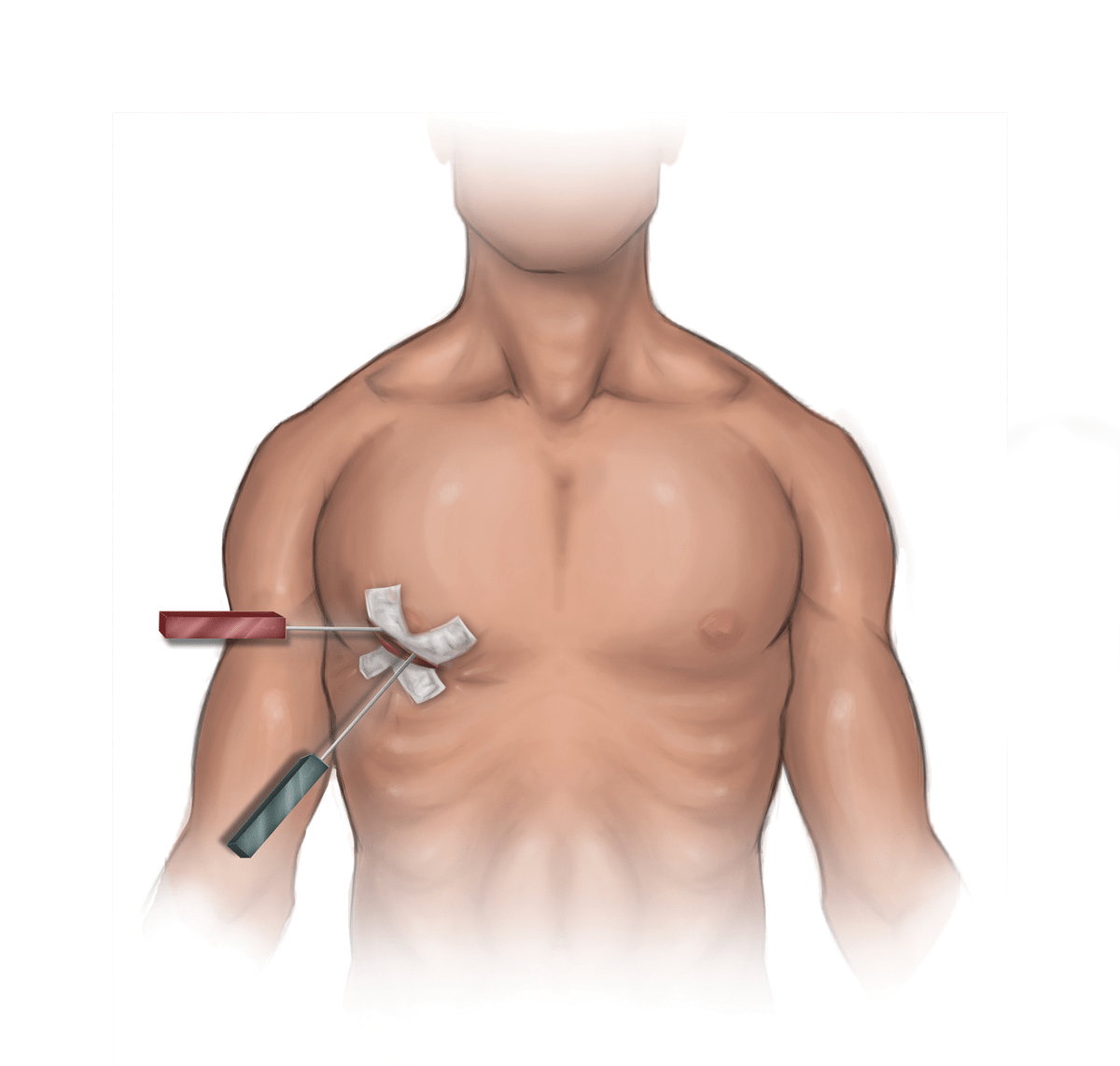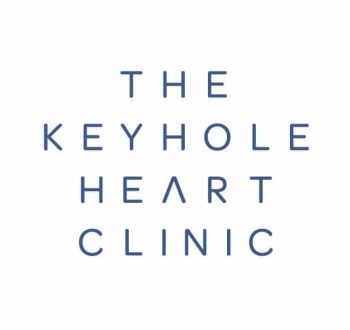
INTRODUCTION
Being told that you need heart surgery can be a very daunting experience and preparing yourself can be overwhelming unless you get the right help and advice. The good news is that there is so much you can do to help yourself to optimise your own recovery. In this short guide, our clinicians share some of the most important tips you can employ to help you recover quicker.
BEFORE YOUR SURGERY
Breathing exercises
Evidence suggests that preparatory deep breathing exercises, when performed regularly, helps to reduce the risk of developing pneumonia. Breathing exercises are especially important if you are having surgery through the breastbone, as the discomfort associated with this incision can disturb deep breathing. Here is an effective regime to get really good at prior to your surgery:
Breathe in deeply and slowly through your nose and into your abdomen for 6-7 seconds
Hold your breath for 2-3 seconds
Breath out slowly and fully through your mouth over 4-5 seconds
Repeat 2 times
Breathe in again and then cough from deep within your lungs
Repeat once
If you get dizzy or light-headed, stop and rest for a while. Do these breathing exercises every day so that they become second nature to you, and you feel confident to perform them after your surgery.
Visit your dentist
It is very important to see your dentist before your surgery, especially if you have heart valve disease. Any low grade infection in your mouth can lead to infection on your heart valve or on the new heart valve replacement that your surgeon inserts at the time of surgery. Most surgeons will request a letter from your dentist to confirm that all is well before they proceed with surgery.
Improve your diet
It is important to eat a balanced diet before your surgery. It is particularly beneficial to increase your vegetable intake. Try and avoid eating foods that you know will constipate you, as constipation is a common problem after your surgery. There are a number of reasons for this. You will be starved for a period prior to your surgery, the drugs you receive in the period before and after your surgery tend to inhibit bowel motion, and the surgery itself can also inhibit normal bowel movement. One of the biggest problems that patients complain about is constipation. We have found that eating prunes before and after your surgery can be far more beneficial than prescribing medicines. Not all hospitals will offer you prunes, so we suggest you ask a family member to bring some to hospital for you to eat after your surgery.
Our bodies synthesise vitamin D only through exposure to the sun. Most people do not get enough sunshine and are certain to be vitamin D deficient as a result. Taking a vitamin D supplement once a day 4-6 weeks before your surgery will help your recovery. Vitamin D is vital for calcium metabolism and bone healing so if you are having your surgery through the breastbone, supplementing your vitamin D preoperatively may be beneficial.
Control of blood sugar in diabetes
Evidence shows that poor blood sugar control in diabetic patients is associated with poor wound healing and a higher risk of infection. Infection in your breastbone can be very serious. If you are diabetic your doctor should measure your HbA1c in your blood to give him/her an indication of how well controlled your blood sugar level has been over the preceding months. If you are concerned that your blood sugar has been poorly controlled, you must mention this to your clinical team.
Quit smoking
Smokers suffer from pneumonia and respiratory complications far more frequently after anaesthesia than non-smokers. It is helpful to stop smoking at least 6 weeks prior to surgery to obtain some benefit. We strongly suggest that you discuss giving up smoking with your doctor. In the long term it is imperative that you try to stop completely in order to optimise the benefits of your surgery.
Reduce your alcohol intake
Excessive alcohol consumption is associated with increased complications after heart surgery. If you drink in excess make sure you tell your doctor, as they will have to modify your anaesthetic drugs and the way they wake you from the ventilator to prevent withdrawal agitation.
Do some exercise
Regular gentle exercise can be very helpful in preparing you for cardiac surgery by improving the way that your body deals with hormones like insulin which helps to keep your blood sugar levels stable and aids in muscle mass preservation. In addition to this, the psychological benefits of exercise have been well demonstrated. A good pre-surgery exercise program should include optimisation of your nutrition, controlled gentle exercises (e.g. walking at a steady pace without getting breathless or suffering chest pain), and anxiety reduction through education. If you decide to “go it alone” then we advise that you discuss your exercise limits with your GP before you start. If you have an aneurysm, aortic stenosis or cardiomyopathy, then exercise should be avoided until after your surgery because of the danger creating too much heart strain.
Skin and nasal cleansing
Some hospitals use a combination of skin washes and nasal antibiotic cream to reduce the risk of infection. Routinely swabbing for MRSA status is also helpful in detecting carriers of resistant bugs which will need eradication prior to surgery if possible. Other than this routine screening, general personal cleanliness is all that is required to prepare you for surgery. If you have pets, then animal hygiene is also important. Depending upon the surgical approach, you will be required to remove any hair from potential incision sites. This is best done prior to going to theatre and preferably the night before surgery.
Preparing your family
Being told that you need heart surgery is very stressful for you in so many ways. It is also important not to underestimate the impact this news has on close family and friends. Talking openly and honestly together is a valuable process. Appointing a “delegate” who communicates your progress to the wider family group can help to reduce the anxiety experienced by everyone who cares about you. Asking your family to help you prepare your home for when you leave hospital can make them feel useful and engaged, as well as relieving you of these burdens.
Ask questions
It is very important that you feel completely comfortable with the decisions that are being made about you. Some people feel comfortable “leaving it to the experts” and this is fine. If, on the other hand, something remains unanswered in your mind, this can affect your psychological recovery adversely, so do not ever be afraid to ask questions if you feel the need to do so.
AFTER YOUR SURGERY
Wound care
If you have had your breastbone split, then it is very important to avoid any heavy lifting for 12 weeks (3 months). It is also wise to avoid any pushing or pulling movements. Most doctors advise that you sleep on your back for the first six weeks; it helps to place a pillow behind each shoulder to take any pressure away from the breastbone. Shower daily and avoid strongly perfumed soaps. Dry the wound with a clean towel and do not cover unless there is leakage from the wound. If this is the case, you should visit your doctor to ensure that it is not infected. Pain from your breastbone cut will be moderate but easily controlled with painkillers. If it becomes severe, this is an indication to see your doctor. It is common for you to feel the breastbone grind a little. Try and avoid the movements that make you feel this. If the movement becomes worse, then ask your doctor to refer you back to your surgeon.

Keyhole Incisions
If you have undergone keyhole heart surgery between the ribs rather than through the breastbone, you can gradually increase your activity after 7 to 10 days. Pain from a keyhole incision is minor, and although infection is not common, it is still important to follow the wound care tips above to optimise your recovery. If your keyhole incision is under your breast, then a twice daily “cleanse and dry” regime is very helpful.

Activity
You should aim to be as mobile as possible. Weather permitting you should walk once or twice a day aiming to complete a distance of at least a few hundred yards in the first week after discharge from hospital, half to one mile by week two and up and down hills as each week progresses.
Driving
You should be able to drive once your surgeon has reviewed you at your six-week follow up appointment.
Back to work
If you are in employment, then you may wish to take up to 3 months away from work especially if you have had your breastbone broken and you must avoid any heavy physical activity during this entire period.
If you have undergone keyhole heart surgery where your breastbone has not been opened, then you should be able to resume normal physical activities from 14 days after your surgery.
Medications
You will be given a precise list of medications at the time of discharge from hospital. Take your medications regularly. Some of the medication will be discontinued at six weeks. Do not stop any medication without being told to do so. If you have any concerns, be sure to discuss this with your doctor.
Feeling sad and depressed
It is very common to feel a little sad and weepy after heart surgery. Fortunately, this feeling will clear within a few days or weeks. It is important to stay as active as possible. If your emotions are still not recovering by six weeks, then make sure to discuss this with your doctor who should refer you to a team who can help you.
And finally make sure to celebrate
When all is said and done you will have gone through a difficult period with great courage and conviction. You must congratulate yourself for this. Remember that your surgery will not only make you feel physically well again, it will also make you live a longer healthier life.
If You Have Not Signed Up To Our FREE Information Portal You Can Do It NOW.
- Aortic Valve Disease Treatment
- Mitral Valve Disease Treatment
- Choices In Heart Valve Replacement
- Options For Treatment In Coronary Disease
- Are You Suitable For Keyhole Heart Surgery
- And So Much More……..
